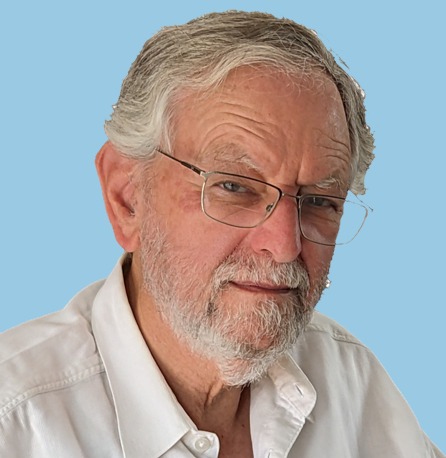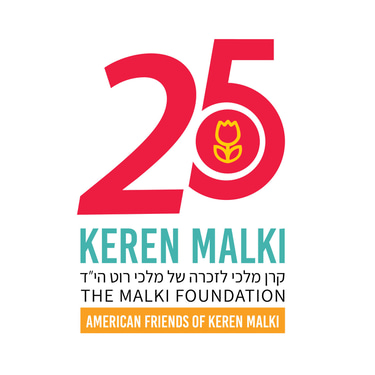Our Grief Turned Into a Mission: Loss Can Spark Hope and Healing
A Personal Message From Arnold Roth, Co-Founder of Keren Malki.


On a sweltering Jerusalem afternoon on August 9, 2001, my daughter Malki, a vibrant 15-year-old American-Israeli, was murdered in a Hamas terror attack at a bustling Sbarro pizzeria. She was one of 16 lives lost in a massacre that shattered families and left a nation reeling.
The woman who orchestrated this horror, bringing a human bomb bearing a guitar case on his should packed with explosives and nails to maximize devastation, remains free in Jordan, despite US charges. The sting of this injustice lingers, an open wound for my wife, Frimet, and me.
Yet, from the ashes of this unbearable loss, we built something enduring: a legacy of hope, empowerment, and love through Keren Malki, the Malki Foundation.
In the throes of grief, during the traditional Jewish shiva—the seven-day mourning period that anchors mourners in community and reflection—I began the process of registering a charity in Malki’s memory. By a haunting coincidence, the certificate of registration for Keren Malki was issued on September 11, 2001, a date that would soon symbolize global tragedy.
Next week we mark 24 years since Keren Malki’s founding and launch a string of silver anniversary events. These days I think a great deal about how tragedy can be a gateway to good, offering solace and purpose to those who suffer loss.
Keren Malki was born from a simple yet profound conviction: no one can raise a child with extreme special needs better than their family, provided they get the right support. Our Malki was a devoted caregiver to her own profoundly disabled youngest sister, Haya, who requires round-the-clock care due to severe neurological impairments. Malki’s love for Haya, her patience and joy in tending to her needs, inspired the foundation’s mission to empower families to keep their children with special needs at home, rather than resorting to institutionalization.
Since 2001, Keren Malki has supported hundreds of Israeli families—Jewish, Muslim, Christian, Druze, religious, secular, rich, poor—without regard to their background.
Our three core programs provide practical help: funding for therapies too often inaccessible via Israel’s healthcare system; home-based equipment like wheelchairs and communication devices; and for families in Israel’s relatively remote peripheral communities a therapist-on-wheels service that solves a problem we wish the government had thought up but still hasn’t.
In 2024, we assisted over 300 families, enabling children with cerebral palsy, Down syndrome, rare genetic disorders and other disabling health issues to thrive at home, surrounded by love.
The impact is tangible. Consider Sarah, a 10-year-old girl with severe neurological challenges whose family could not afford a communication device to help her express herself. Through Keren Malki and a therapist whose services we funded, Sarah now has a tablet with specialized software, unlocking her ability to communicate her needs and dreams.
Or take Ahmed, a Bedouin boy with muscular dystrophy, whose family accessed a custom wheelchair, allowing him to attend school for the first time.
Cases like these are the heartbeat of our work. By focusing on the child’s potential and the family’s resilience, we help narratives of despair become dreams of possibility. In its 24 years of work, Keren Malki has delivered millions of dollars in aid, supporting thousands of children across Israel.
But the truest measure of our work is in the intangibles—the smiles of parents who see a child take a step forward, the relief of knowing they are not alone, the knowledge someone well-connected and capable is at their side.
Ours is a mission that transcends politics, religion and ethnicity, uniting families in a shared commitment to parental love, dignity and care.
We Jews are no strangers to transforming pain into purpose. Our history is replete with examples of communities rising from tragedy to build institutions that heal and uplift. Judaism has a word for it: chesed – the idea of doing good for others with no expectation of reward. It was the hallmark of Malki’s life.
Keren Malki embodies this ethos, channeling personal loss into collective achievement and progress. It reminds us that even in our darkest moments, there’s scope to plant seeds for a brighter future. For Frimet and me, this is how we honor Malki’s memory, keeping her light alive in a world that feels increasingly fractured.
As we approach Keren Malki’s 25th anniversary, I invite you to join us in this vision. Tragedy need not define us; it can inspire us to create something greater than our pain. Whether through supporting organizations like Keren Malki, volunteering, or simply listening to the stories of those who persevere, we can all be part of building hope from loss.
In doing so, we affirm a timeless truth: love endures, and from it, good things grow.
Arnold Roth, along with his wife, Frimet, are co-founders of Keren Malki - the Malki Foundation.




